
Highly-regarded Slovakian composer Adrian Demoč, known for his delicate and introspective approach to contemporary music, presents three chamber works: "Zamat," a 10-minute quartet for clarinet, bass clarinet, and cello exploring Korean unisons; "Gebrechlichkeit," a 25-minute string quartet; and "...o proton jasu...," a 30-minute piece commissioned by Another Timbre, for two clarinets, viola, and cello.
In Stock
Quantity in Basket: None
Log In to use our Wish List
Shipping Weight: 3.00 units
EU & UK Customers:
Discogs.com can handle your VAT payments
So please order through Discogs
Sample The Album:
Adrian Democ-composer
Raymond Brien-clarinet
Heather Roche-bass clarinet
Chihiro Ono-viola
Anton Lukoszevieze-cello
Mira Benjamin-violin
Gordon MacKay-violin
Bridget Carey-viola
Anton Lukoszevieze-cello
Heather Roche-clarinets
Raymond Brien-clarinets
Chihiro Ono-viola
Click an artist name above to see in-stock items for that artist.
Label: Another Timbre
Catalog ID: at229
Squidco Product Code: 35479
Format: CD
Condition: New
Released: 2024
Country: UK
Packaging: Cardboard Gatefold
Recorded at Goldsmiths Recording Studio, in London,UK, in December 2023 and January 2024, by Simon Reynell.
Another Timbre Interview with Adrián Demoč by Marat Ingeldeev
There are three pieces on this CD. The first, Zamat, has an airy quality, with an inquisitive melody played by the clarinets. Given the title's translation to 'velvet', it seems that texture plays a significant role in the composition. Was exploring texture your primary focus, or were there other elements you wanted to emphasise?
The smooth and slightly dark 'velvety' sound does play a significant role in Zamat. And yes, the listener's main focus could be this: observing the soft delay between individual players, achieved through a technique John Cage referred to as Korean unison (where the instruments' attacks and individual tempi are close but not perfectly synchronised). Although this technique is thoroughly described in the score, there is no connection to Cage's aesthetics here and other terms, such as 'phasing' or simply 'delay', could be used as well. I also personally enjoy the specific timbre of the clarinet and bass clarinet combination. Zamat should be performed with soft dynamics and non vibrato, which is often the case with my music. There are two subtle but clearly audible dynamic layers: a soft yet clear piano and an even softer echo. I find Apartment House's performance beautiful (and the same goes for the rest of the pieces!). They managed to preserve all these nuances and made it sound very natural.
The second piece, Gebrechlichkeit, translates as 'frailty' or 'weakness'. It immerses the listener in a tense and dark soundworld, with the players' breathing intensifying the experience and the soundwaves seeming to rub against each other. Could you talk us through how the work unfolds and how you approached building this atmosphere?
You're right that the German word Gebrechlichkeit means 'frailty'. I hadn't considered its secondary meaning, 'weakness'. I simply liked the sound of the word, which, to my ears, has a certain crispiness or natural tension that resonates well with the music. It's similar to the Slovak word krehkosť or the Czech křehkost, but I preferred the German term because its length emphasises this whispery quality even more.
As usual, my compositional method was quite straightforward: I listened to the music repeatedly, immersing myself in it with attention. I did not adhere to any pre-compositional process or form beforehand but instead followed the music as it developed. This approach often meant removing unnecessary elements, material and repetitions, and avoiding 'mechanical processes', rather than adding new components after each internal exploration of the music. I lived with these relatively simple musical elements for several months: one chromatic cluster (and its transposition) of varying durations, a few consonant chords and even fewer unisons or dyads, which are gradually introduced throughout the piece. These elements emerged more from intuition than from deliberate planning. Additionally, Gebrechlichkeit brought up some compositional challenges I hadn't addressed for years, such as incorporating a strong dynamic contrast at one moment in the piece. The work remains somewhat enigmatic to me.
The strong dynamic contrast you're referring to indeed came as a surprise to me. In your previous interview with Another Timbre, you describe your preference for writing 'gentle and soft, non-violent music'. What compositional challenges do you face with louder, more violent sonorities?
Generally, I tend to prefer soft and non-violent music. But again, this description is quite broad and fortunately doesn't impose fixed rules on how I should compose a piece. The same applies to musical situations that are more violent or louder. I simply listen to what the music requires and do my best to respond accordingly.
Going back to Gebrechlichkeit, the entire composition should be played with soft dynamics and non vibrato, although the very basic material, the cluster, does already carry a certain energy or disquiet that may or may not be resolved musically (and contributed to the shape of the work). In this musical context, which feels more like whispering than speaking, there is a tendency in the piece to build towards greater tension (though subtle and not in a mechanical way, as described earlier). The decision to release this tension with a single strong sound (loud, but not espressivo) near the end was quite spontaneous, though it took me several weeks to allow it to remain there. I also felt a musical need to keep everything surrounding it in soft dynamics, avoiding crescendos or decrescendos.
I really like that Gebrechlichkeit exists in three versions: '(1) specific instrumentation, (2) open instrumentation with a similar timbre and register, and (3) a "monochromatic polyphonic" instrument, preferably the piano' as you explain in an interview with Yuko Zama from elsewhere music. Does it mean you were less concerned with the nuances of individual instruments and more focused on how the frequencies interact?
It was a commission for the Prague Quiet Music Collective, which is a quartet consisting of clarinet, violin, double bass and a versatile player, Ian Mikyska, who played electric guitar in this piece. I initially began writing for four instruments ad libitum, but as the work progressed, I realised it could also work well with a more homogeneous sound, such as a string quartet or a solo instrument. Naturally, different versions of the piece highlight various characteristics, such as the ensemble's breathing and attack times, the blending of the instruments, and their overtones. Each version reveals unique aspects and brings its own discoveries, making them valuable in their own way. While it's not something I always do, several of my pieces exist in various instrumental combinations, somewhat akin to the tradition seen in some of Bach's or Pärt's works.
The final work on the CD, ...o protón jasu..., also features the whispery quality you mentioned in relation to Gebrechlichkeit and seems to primarily focus on higher frequencies. Could you tell us more about the piece? I'll leave the title's translation to you, as my understanding of Slovak falls short here.
The title comes from a verse by Slovak poet Rudolf Jurolek: 'Sometimes we miss paradise only by an eyelash of reality, a missing proton of light'. I hold Jurolek's poetry and artistic path in high regard, so the composition is dedicated to him. His verse captures a sensation that I felt while composing, or 'searching for', this music. It's quite elusive and personal, but to simplify, it's a feeling of longing or almost arriving somewhere.
The title also metaphorically refers to the tiny microtonal deviations used throughout the piece. Unlike Gebrechlichkeit, ...o protón jasu... was written for a very specific instrumentation, similar to Zamat. It is (again like Zamat) based on a single monodic line, although there are several exceptions. In Zamat, the melody is played by the clarinets, with the strings adding gentle pizzicatos (except at the very end). In contrast, ...o protón jasu... highlights the sound of bowed strings, while the clarinets form a kind of 'shadow' with attacks, dynamic accents, hocketing and occasional unison doubling. But again, there are exceptions.
Artist Biographies
• Show Bio for Adrian Democ "Adrian Demoč is a composer and occasional performer and improviser (fujara, piano). He studied with Martin Smolka, Frantisek Emmert, Doina Rotaru and Osvaldas Balakauskas in Brno, Bucharest and Vilnius. In 2008, Adrian received the Leoš Janáček foundation prize and later continued his doctorate studies with Martin Smolka (his thesis "Spectral music and its perception of time" was published in 2012), obtaining a PhD. In 2010 he was the head of the jury of the music discipline at NEU/NOW Nantes festival organized by ELIA European League of Institutes of the Arts. In 2011 he was the selected composer for the United Nations Youth Orchestra (Benasque, Spain) with his piece Three movements for string orchestra (2011). Adrian's music has been performed so far in Slovakia, Czech Republic, Germany, Austria, Romania, Lithuania, France, Spain and USA. His music ranges from orchestral (Symphony, Zikkurat) and chamber music to conceptual scores (Chess) and multi-media performances (Bioprodukt)." ^ Hide Bio for Adrian Democ • Show Bio for Raymond Brien Raymond Brien is a clarinetist, Composer and Artistic Director of the Thinking Minds Project. ^ Hide Bio for Raymond Brien • Show Bio for Heather Roche "Born in Canada, clarinetist Heather Roche trained in England, lived in Germany for 7 years and now lives in London. She has performed at some of the major European festivals, including musikFest (Berlin), BachFest (Leipzig), Musica Nova (Helsinki), Acht Brücken (Cologne), the International Computer Music Conference (Huddersfield, Ljubljana), the Dias de Música Electroacústica (Seia, Portugal) and the Agora Festival (Ircam, Paris). She has also performed solo programmes at the Zagreb Music Biennale, the Huddersfield Contemporary Music Festival, the New York Electroacoustic Symposium, at CIRMMT (Montreal), Unerhörte Musik (Berlin), Eavesdropping (London), and with the Birmingham Electroacoustic Sound Theatre (BEAST). She has performed with ensembles and orchestras including Musik Fabrik (Cologne), the WDR Orchestra (Cologne), mimitabu (Gothenburg), the London Symphony Orchestra (London), ensemble Garage (Cologne), ensemble interface (Berlin), the Riot Ensemble (London), the Alisios Camerata (Zagreb), and ensemble proton (Bern). She also plays across the UK in a trio with Carla Rees (flutes) and Xenia Pestova (piano) and in 2015 formed an duo with the accordionist Eva Zöllner, with whom she has played across Germany, the UK and in Portugal. She is a founding member of hand werk, a 6-person chamber music ensemble based in Cologne, and worked with the group from 2010-2017. She has solo CDs out on the HCR/NMC and Métier labels. Please see the Discography for further details. In 2014 she was awarded a DIVA (Danish International Visiting Artists Fellowship), and lived in Copenhagen for two months. Since 2016 she has acted as the Reviews Editor for TEMPO, a quarterly journal for contemporary music published by Cambridge University Press. Her website is host to one of the most widely read new music blogs on the Internet. In 2017 it had 75,000 hits from around the world. She successfully crowdfunded in 2014 in order to host her first composition competition. Six young composers were chosen out of 270 applicants to write new pieces, which were premiered in 2016. She is a fervent advocate of collaboration, and her PhD research at the University of Huddersfield (under the supervision of Dr. Philip Thomas) explored the nature of dialogue within performer-composer relationships. She has given workshops in instrumental technique and/or iPad use in performance all over Europe, for example in London, Munich and Copenhagen. Heather completed her Masters of Music (Orchestral Training) in 2006 at the Guildhall School of Music and Drama in London, studying under Joy Farrall and Laurent Ben Slimane, in addition to conducting with Sian Edwards. Following her degree she completed residencies with the International Ensemble Modern Academy, at IMPULS in Graz and with ensemble recherche in Freiburg, the Darmstadt Summer Courses 2008 and 2010 and the International Ensemble Modern Academy in Innsbruck, Austria. She has performed in masterclasses with Michael Collins, Ernesto Molinari and Shizuyo Oka, to name a few. She completed her BMus in 2005 at the University of Victoria, Canada, studying under Patricia Kostek." ^ Hide Bio for Heather Roche • Show Bio for Chihiro Ono "Japanese-born violinist Chihiro Ono use music as a tool to explore human abilities, link people and places, and open human beings' minds." ^ Hide Bio for Chihiro Ono • Show Bio for Anton Lukoszevieze "Cellist Anton Lukoszevieze (born 1965 in the UK) is one of the most diverse performers of his generation and is notable for his performances of avant-garde, experimental and improvised music. Anton has given many performances at numerous international festivals throughout Europe and the USA (Maerzmusik, Donaueschingen, Wien Modern, GAS, Transart, Ultima, etc.etc.). He has also made frequent programmes and broadcasts for BBC Radio 3, Danish Radio, SR2, Sweden, Deutschland Rundfunk, WDR, Germany and ORT, Austria. Deutschlandfunk, Berlin produced a radio portrait of him in September, 2003. Anton has also performed concerti with the City of Birmingham Symphony Orchestra at the 2001 Aldeburgh festival and the Netherlands Radio Symphony Orchestra. He has collaborated with many composers and performers including David Behrman, Alvin Lucier, Amnon Wolman, Pierre Strauch, Rytis Mazulis, Karlheinz Essl, Helmut Oehring, Christopher Fox, Philip Corner, Alvin Curran, Phill Niblock and Laurence Crane, He is unique in the UK through his use of the curved bow (BACH-Bogen), which he is using to develop new repertoire for the cello. From 2005-7 he was New Music Fellow at Kings College, Cambridge and Kettles Yard Gallery. Anton is the subject of four films (FoxFire Eins) by the renowned artist-filmmaker Jayne Parker. A new film Trilogy with compositions by Sylvano Bussotti, George Aperghis and Laurence Crane premieres at The London Film Festival, October 2008. In November will premiere a new hour long work by Christopher Fox for cello and the vocal ensemble Exaudi commissioned by the Huddersfield Contemporary Music Festival and will also present new solo works for cello and live electronics. Anton is also active as an artist, his work has been shown in Holland (Lux Nijmegen), CAC, Vilnius, Duisburg (EarPort), Austria, (Sammlung Essl), Wien Modern, The Slade School of Art, Kettles Yard Gallery, Cambridge Film Festival and Rational Rec. London. His work has been published in Musiktexte, Cologne, design Magazine and the book SoundVisions (Pfau-Verlag, Saarbrucken, 2005). Anton Lukoszevieze is founder and director of the ensemble Apartment House, a member of the radical noise group Zeitkratzer and recently made his contemporary dance debut with the Vincent Dance Company in Broken Chords, Dusseldorf." ^ Hide Bio for Anton Lukoszevieze • Show Bio for Mira Benjamin "Mira Benjamin is a Canadian violinist, researcher and new-music instigator. She performs new and experimental music, with a special interest in microtonality & tuning practice. She actively commissions music from composers at all stages of their careers, and develops each new work through multiple performances. Current collaborations include new works by Anna Höstman, Scott McLaughlin, Amber Priestley, Taylor Brook and James Weeks. Since 2011, Mira has co-directed NU:NORD - a project-based music and performance network which instigates artistic exchanges and encourages community building between music creators from Canada, Norway & the UK. To date NU:NORD has engaged 79 artists and commissioned 62 new works. Through this initiative, Mira hopes to offer a foundation from which Canadian artists can reach out to artistic communities overseas, and provide a conduit through which UK & Norwegian artists can access Canada's rich art culture. Originally from Vancouver, British Columbia, Mira lived for ten years in Montréal, where she was a member of Quatuor Bozzini. Since 2014 she has resided in London (UK), where she regularly performs with ensembles such as Apartment House, Decibel, and the London Contemporary Orchestra Soloists, and is currently the Duncan Druce Scholar in Music Performance at the University of Huddersfield. Mira is the recipient of the 2016 Virginia Parker Prize from the Canada Council for the Arts. The prize is awarded annually to a Canadian musician in recognition of their contribution to the artistic life in Canada and internationally." ^ Hide Bio for Mira Benjamin • Show Bio for Gordon MacKay "Violinist Gordon MacKay was a member of the National Youth Orchestra of Scotland before gaining a music degree at the University of London. He is currently a member of contemporary group Apartment House, and has also performed with the Kreutzer Quartet, as well as featuring as a guest player with Lontano and the London Symphony Orchestra. He has recorded a solo violin work by Sylvano Bussotti for BBC Radio 3, and performed a violin duo by Effy Efthymiou with Madeleine Mitchell, which was shortlisted for the Ivan Juritz Prize in 2018." ^ Hide Bio for Gordon MacKay • Show Bio for Bridget Carey "Bridget Carey studied jointly at the Royal Academy of Music and London University and has pursued a varied freelance career based in London, and has developed a particular reputation in the field of new music. For 15 years she premiered new chamber opera for the Almeida, whilst working in dance scores with Siobhan Davies and Rambert companies, classical contemporary with Opus 20 and Music Projects/London and new complexity with Ensemble Expose. From 1995-2005 she was viola player with the Kreutzer string quartet. More recently, her chamber music interests include Okeanos and the RPS award-winning experimental music group Apartment House, with whom she continues to add to her chamber music discography. She has been a member of Britten Sinfonia for the last 20 years, and is a regular guest with London Sinfonietta and BCMG, among others." ^ Hide Bio for Bridget Carey • Show Bio for Anton Lukoszevieze "Cellist Anton Lukoszevieze (born 1965 in the UK) is one of the most diverse performers of his generation and is notable for his performances of avant-garde, experimental and improvised music. Anton has given many performances at numerous international festivals throughout Europe and the USA (Maerzmusik, Donaueschingen, Wien Modern, GAS, Transart, Ultima, etc.etc.). He has also made frequent programmes and broadcasts for BBC Radio 3, Danish Radio, SR2, Sweden, Deutschland Rundfunk, WDR, Germany and ORT, Austria. Deutschlandfunk, Berlin produced a radio portrait of him in September, 2003. Anton has also performed concerti with the City of Birmingham Symphony Orchestra at the 2001 Aldeburgh festival and the Netherlands Radio Symphony Orchestra. He has collaborated with many composers and performers including David Behrman, Alvin Lucier, Amnon Wolman, Pierre Strauch, Rytis Mazulis, Karlheinz Essl, Helmut Oehring, Christopher Fox, Philip Corner, Alvin Curran, Phill Niblock and Laurence Crane, He is unique in the UK through his use of the curved bow (BACH-Bogen), which he is using to develop new repertoire for the cello. From 2005-7 he was New Music Fellow at Kings College, Cambridge and Kettles Yard Gallery. Anton is the subject of four films (FoxFire Eins) by the renowned artist-filmmaker Jayne Parker. A new film Trilogy with compositions by Sylvano Bussotti, George Aperghis and Laurence Crane premieres at The London Film Festival, October 2008. In November will premiere a new hour long work by Christopher Fox for cello and the vocal ensemble Exaudi commissioned by the Huddersfield Contemporary Music Festival and will also present new solo works for cello and live electronics. Anton is also active as an artist, his work has been shown in Holland (Lux Nijmegen), CAC, Vilnius, Duisburg (EarPort), Austria, (Sammlung Essl), Wien Modern, The Slade School of Art, Kettles Yard Gallery, Cambridge Film Festival and Rational Rec. London. His work has been published in Musiktexte, Cologne, design Magazine and the book SoundVisions (Pfau-Verlag, Saarbrucken, 2005). Anton Lukoszevieze is founder and director of the ensemble Apartment House, a member of the radical noise group Zeitkratzer and recently made his contemporary dance debut with the Vincent Dance Company in Broken Chords, Dusseldorf." ^ Hide Bio for Anton Lukoszevieze • Show Bio for Heather Roche "Born in Canada, clarinetist Heather Roche trained in England, lived in Germany for 7 years and now lives in London. She has performed at some of the major European festivals, including musikFest (Berlin), BachFest (Leipzig), Musica Nova (Helsinki), Acht Brücken (Cologne), the International Computer Music Conference (Huddersfield, Ljubljana), the Dias de Música Electroacústica (Seia, Portugal) and the Agora Festival (Ircam, Paris). She has also performed solo programmes at the Zagreb Music Biennale, the Huddersfield Contemporary Music Festival, the New York Electroacoustic Symposium, at CIRMMT (Montreal), Unerhörte Musik (Berlin), Eavesdropping (London), and with the Birmingham Electroacoustic Sound Theatre (BEAST). She has performed with ensembles and orchestras including Musik Fabrik (Cologne), the WDR Orchestra (Cologne), mimitabu (Gothenburg), the London Symphony Orchestra (London), ensemble Garage (Cologne), ensemble interface (Berlin), the Riot Ensemble (London), the Alisios Camerata (Zagreb), and ensemble proton (Bern). She also plays across the UK in a trio with Carla Rees (flutes) and Xenia Pestova (piano) and in 2015 formed an duo with the accordionist Eva Zöllner, with whom she has played across Germany, the UK and in Portugal. She is a founding member of hand werk, a 6-person chamber music ensemble based in Cologne, and worked with the group from 2010-2017. She has solo CDs out on the HCR/NMC and Métier labels. Please see the Discography for further details. In 2014 she was awarded a DIVA (Danish International Visiting Artists Fellowship), and lived in Copenhagen for two months. Since 2016 she has acted as the Reviews Editor for TEMPO, a quarterly journal for contemporary music published by Cambridge University Press. Her website is host to one of the most widely read new music blogs on the Internet. In 2017 it had 75,000 hits from around the world. She successfully crowdfunded in 2014 in order to host her first composition competition. Six young composers were chosen out of 270 applicants to write new pieces, which were premiered in 2016. She is a fervent advocate of collaboration, and her PhD research at the University of Huddersfield (under the supervision of Dr. Philip Thomas) explored the nature of dialogue within performer-composer relationships. She has given workshops in instrumental technique and/or iPad use in performance all over Europe, for example in London, Munich and Copenhagen. Heather completed her Masters of Music (Orchestral Training) in 2006 at the Guildhall School of Music and Drama in London, studying under Joy Farrall and Laurent Ben Slimane, in addition to conducting with Sian Edwards. Following her degree she completed residencies with the International Ensemble Modern Academy, at IMPULS in Graz and with ensemble recherche in Freiburg, the Darmstadt Summer Courses 2008 and 2010 and the International Ensemble Modern Academy in Innsbruck, Austria. She has performed in masterclasses with Michael Collins, Ernesto Molinari and Shizuyo Oka, to name a few. She completed her BMus in 2005 at the University of Victoria, Canada, studying under Patricia Kostek." ^ Hide Bio for Heather Roche • Show Bio for Raymond Brien Raymond Brien is a clarinetist, Composer and Artistic Director of the Thinking Minds Project. ^ Hide Bio for Raymond Brien • Show Bio for Chihiro Ono "Japanese-born violinist Chihiro Ono use music as a tool to explore human abilities, link people and places, and open human beings' minds." ^ Hide Bio for Chihiro Ono
12/9/2024
Have a better biography or biography source? Please Contact Us so that we can update this biography.
12/9/2024
Have a better biography or biography source? Please Contact Us so that we can update this biography.
12/9/2024
Have a better biography or biography source? Please Contact Us so that we can update this biography.
12/9/2024
Have a better biography or biography source? Please Contact Us so that we can update this biography.
12/9/2024
Have a better biography or biography source? Please Contact Us so that we can update this biography.
12/9/2024
Have a better biography or biography source? Please Contact Us so that we can update this biography.
12/9/2024
Have a better biography or biography source? Please Contact Us so that we can update this biography.
12/9/2024
Have a better biography or biography source? Please Contact Us so that we can update this biography.
12/9/2024
Have a better biography or biography source? Please Contact Us so that we can update this biography.
12/9/2024
Have a better biography or biography source? Please Contact Us so that we can update this biography.
12/9/2024
Have a better biography or biography source? Please Contact Us so that we can update this biography.
12/9/2024
Have a better biography or biography source? Please Contact Us so that we can update this biography.
Track Listing:
1. Zamat 10:50
2. Gerechlichkeit 24:29
3. ... O Proton Jasu... 31:24
Compositional Forms
Chamber Rock
London & UK Improv & Related Scenes
Large Ensembles
New in Compositional Music
Recent Releases and Best Sellers
Search for other titles on the label:
Another Timbre.


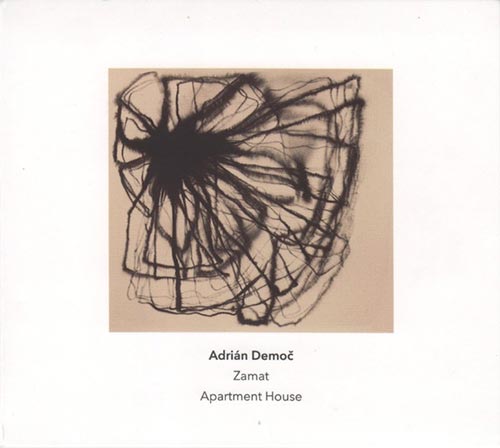

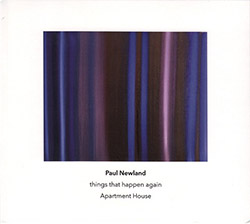

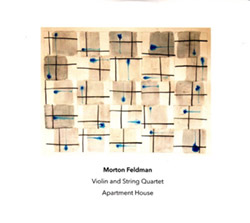
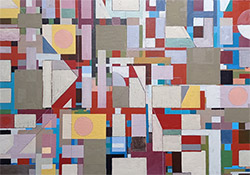
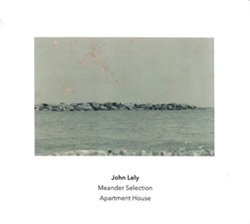
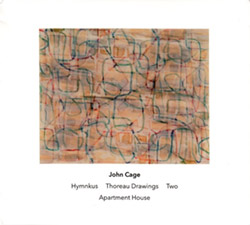
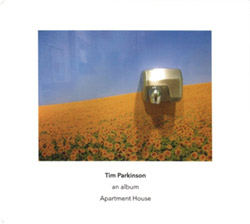
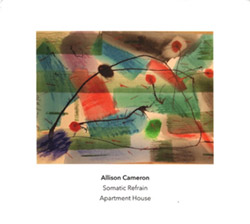
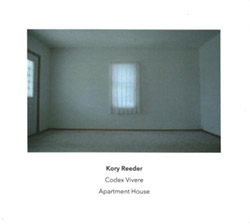


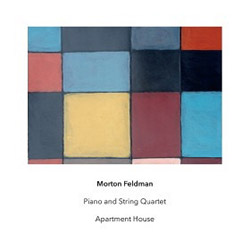
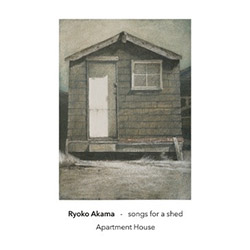

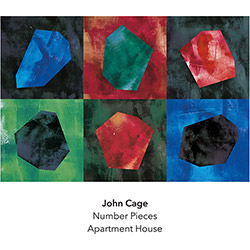

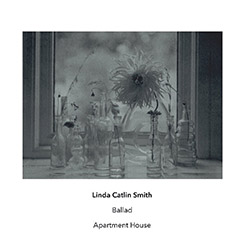
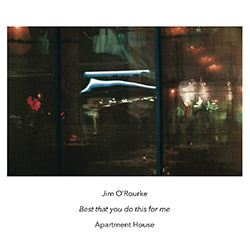




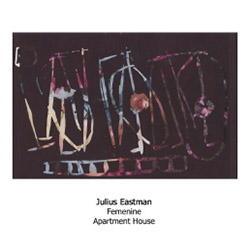


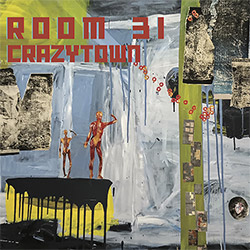
![Dunmall / Noble / Edwards / Sanders : Disappearing Worlds [MISPRINTED EDITION]](https://www.teuthida.com/productImages/misc4/35501.jpg)

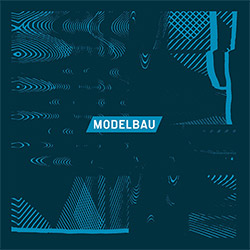
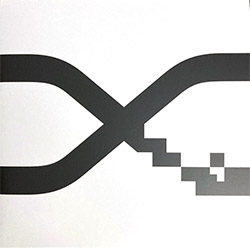
![Alva Noto: Xerrox Vol. 5 [VINYL 2 LPs]](https://www.teuthida.com/productImages/misc4/35359.jpg)

![Mezei, Szilard Tul A Tiszan Innen Ensemble: Reveszem [2 CDs]](https://www.teuthida.com/productImages/misc4/35499.jpg)
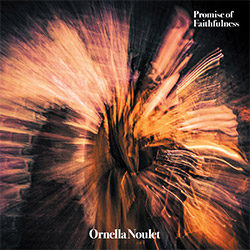

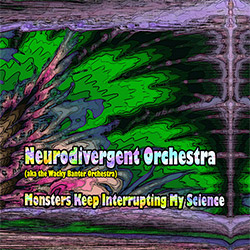

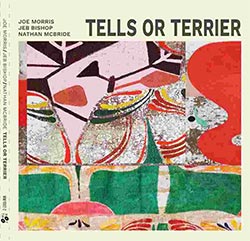
![Lonsdale, Eden: Dawnings [2 CDs]](https://www.teuthida.com/productImages/misc4/35480.jpg)
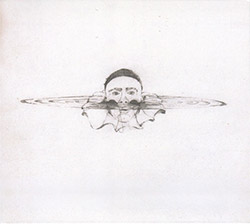
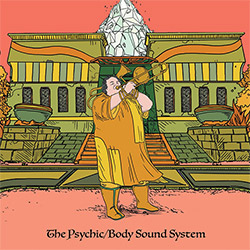

![Gush (Gustafsson / Sandell / Strid) + Guests: Gush 30 - Krakow 2018 [3 CD BOX SET]](https://www.teuthida.com/productImages/misc4/35526.jpg)


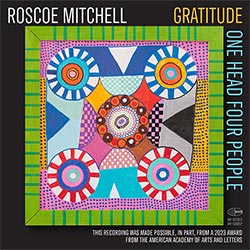
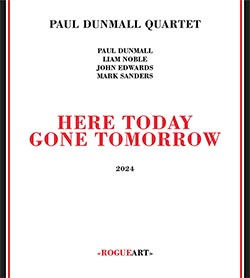
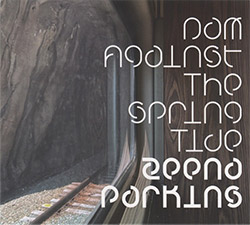
![Weston, Matt: Communism Has Appeared On The Scene [VINYL 2 LPs]](https://www.teuthida.com/productImages/misc4/35546.jpg)
![Coleman, Steve & Five Elements: PolyTropos / Of Many Turns [2 CDs]](https://www.teuthida.com/productImages/misc4/35476.jpg)
![Sorey, Tyshawn (w/ Diehl / Ragahavan): The Susceptible Now [DOUBLE VINYL]](https://www.teuthida.com/productImages/misc4/35477.jpg)


![Coltrane, John Quartet (w/ Tyner / Garrison / Jones): Impressions From Graz 1962, Revisited [2 CDs]](https://www.teuthida.com/productImages/misc4/35495.jpg)
![Guy, Barry / Ken Vandermark: Occasional Poems [2 CDs]](https://www.teuthida.com/productImages/misc4/34849.jpg)


![Novoa / Carter / Mela Trio: Vol.1 [VINYL]](https://www.teuthida.com/productImages/misc4/35236.jpg)
![Evans, Peter (Evans / Eldh / Black): Extra [VINYL]](https://www.teuthida.com/productImages/misc4/35279.jpg)

![McPhee, Joe: Straight Up, Without Wings [BOOK]](https://www.teuthida.com/productImages/misc4/35454.jpg)




![Barker / Parker / Irabagon: Bakunawa [VINYL]](https://www.teuthida.com/productImages/misc4/35533.jpg)




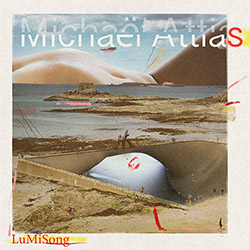
![Blaser, Samuel / Marc Ducret / Peter Bruun: Dark Was The Night, Cold Was The Ground [VINYL 10-inch]](https://www.teuthida.com/productImages/misc4/35492.jpg)

![Jeck, Philip: rpm [2 CDs]](https://www.teuthida.com/productImages/misc4/35455.jpg)






![DNS: Taking Big Bites Of The Khandas Three Cafes Deep [2 CDs]](https://www.teuthida.com/productImages/misc4/35334.jpg)




![Cleaver, Gerald: The Process [VINYL]](https://www.teuthida.com/productImages/misc4/34966.jpg)




![Alva Noto: HYbr:ID II [VINYL 2 LPs]](https://www.teuthida.com/productImages/misc4/35201.jpg)

![Baron, Derek / Luke Martin: Distinct and Concealed [CASSETTE + DOWNLOAD]](https://www.teuthida.com/productImages/misc4/35079.jpg)

![Lyle, Erica Dawn : Colonial Motels [CASSETTE + DOWNLOAD]](https://www.teuthida.com/productImages/misc4/35080.jpg)







![Sanna, Claudio: Compositori Sardi Contemporanei II [2 CDs]](https://www.teuthida.com/productImages/misc4/35317.jpg)







![Zurria, Manuel: Fame di Vento [3 CDs]](https://www.teuthida.com/productImages/misc4/35167.jpg)
![Granberg, Magnus / Nattens Inbrott / Skogen: Holde Traume, Kehret Wieder! [2 CDs]](https://www.teuthida.com/productImages/misc4/35038.jpg)
![Frey, Jurg: Outermost Melodie [2 CDs]](https://www.teuthida.com/productImages/misc4/35039.jpg)

![Pavone, Jessica: Reverse Bloom [VINYL]](https://www.teuthida.com/productImages/misc4/34895.jpg)




![Modney (Modney / Wooley / Gentile / Roberts / Pluta / Symthe / ...): Ascending Primes [2 CDs]](https://www.teuthida.com/productImages/misc4/34852.jpg)



![Elephant9 : Mythical River [VINYL]](https://www.teuthida.com/productImages/misc4/34624.jpg)



![Elephant9 with Terje Rypdal: Catching Fire [VINYL 2 LPs]](https://www.teuthida.com/productImages/misc4/35355.jpg)
![Deerlady (Obomsawin, Mali / Magdalena Abrego): Greatest Hits [VINYL]](https://www.teuthida.com/productImages/misc4/34876.jpg)




![Haino, Keiji: Black Blues [2 CDs]](https://www.teuthida.com/productImages/misc4/35109.jpg)



![Surplus 1980: Illusion of Consistency [CD]](https://www.teuthida.com/productImages/misc4/35069.jpg)
![Staiano, Moe: Away Towards the Light [VINYL + DOWNLOAD]](https://www.teuthida.com/productImages/misc4/35037.jpg)



![Caveira (Gomes / Sousa / Abras / Ferrandini): Ficar Vivo [VINYL]](https://www.teuthida.com/productImages/misc4/34643.jpg)
![Gregg, J. J. / David Van Auken: Lunar Prairie [CD w/ DOWNLOAD]](https://www.teuthida.com/productImages/misc4/34611.jpg)

![Coultrain: Mundus [VINYL]](https://www.teuthida.com/productImages/misc4/32439.jpg)
![Mattin: Songbook #6 [VINYL]](https://www.teuthida.com/productImages/misc4/27317.jpg)
![Punkappella: Wake Up [7-inch VINYL]](https://www.teuthida.com/productImages/misc4/17519.jpg)
![Residents, The: WARNING: UNiNC.: Live And Experimental Recordings 1971-1972 [VINYL 2 LPs]](https://www.teuthida.com/productImages/misc4/31521.jpg)
![Coultrain: Phantasmagoria [VINYL]](https://www.teuthida.com/productImages/misc4/30142.jpg)
![Lennon, Sean Ono: Asterisms [VINYL]](https://www.teuthida.com/productImages/misc4/34517.jpg)

![Coley, Byron: Dating Tips for Touring Bands [VINYL]](https://www.teuthida.com/productImages/misc4/17906.jpg)

![Lost Kisses: My Life is Sad & Funny [DVD]](https://www.teuthida.com/productImages/misc4/lostKissesDVD.jpg)